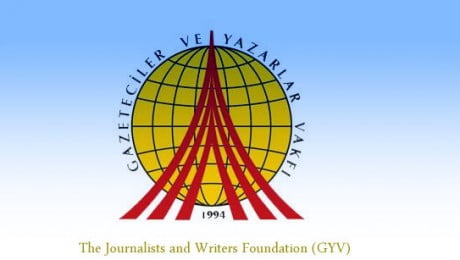Keyword: Democracy

Power struggle for the state or deep rift about Turkey?
As an external observer, I see a profound rift having taken place between Erdoğan — more than anybody else in the AKP — and the Hizmet movement; and that has much less to do with the power struggle than a resistance to another massive, individual attempt to accumulate power in one person.What has defined Erdoğan’s way with various social segments since 2011 is to alienate, antagonize, suppress and devour. So was his pattern with the dissident Kurds, Alevis, leftists, liberals and now Hizmet.

Consultation from Gülen’s perspective: The relationship between the ruler and the ruled
Even if the head of state or the leader is confirmed by God and nurtured by revelation and inspiration, he is obliged to conduct affairs by consultation. In fact, any society that has ignored or disregarded this practice has never prospered; rather, it has perished. So the Messenger of God saw the salvation and progress of his community in consultation: “Those who consult do not lose.”

New York Times : Hundreds of Police Officers Reassigned in Turkey
Mr. Gulen’s followers vehemently deny claims that his adherents control state institutions. They argue that if his sympathizers are well represented within the police and judiciary, it is because they are well educated and highly qualified for their jobs.

Operation against whom?
A claim made this past weekend by Hüseyin Gülerce, a senior columnist for the Zaman daily, affiliated with the Gülen (Hizmet) movement, increased tensions in Ankara when he suggested that a major operation will be carried out by the government against the Gülen movement, which it believes to be behind the graft investigation.

Erdoğan’s house of cards
In a long statement, the Journalists and Writers Foundation (GYV), whose honorary chair is Gülen, has called on the government to submit whatever evidence it has on conspiracies, such as those involving a “deep state” and “parallel structures” as well as accusations of “treason,” “espionage” and “collaboration with international powers” against the interests of Turkey. In other words, Gülen is standing firm and not blinking in the face of Erdoğan’s preposterous threats.

Ex-AK Party deputy Özdalga: Gov’t wants to make judiciary subordinate to executive power
“The issue is not only about corruption, it is also about the independence of the judiciary and the separation of powers, things at the heart of the democratic regime. There is no democracy without these,” says Haluk Özdalga, who was a member of the ruling party since 2007 until his recent resignation.

GYV says Gülen did not send letter to Erdoğan
“In those days [of the corruption debate], it was conveyed to us that President Abdullah Gül, having held meetings with various groups in the name of peace for the nation and to prevent debates from escalating further, wished to send an envoy to Gülen to transmit his thoughts as well as to learn Gülen’s considerations,” Şimşek explained.

Conspiracy theory par excellence [against Gülen movement]
That broad spectrum of people appears to be convinced that Islamic scholar Fethullah Gülen, who has advanced an interpretation of Islam in line with liberal modernity, and the faith-based social movement he has inspired, is to be blamed for all wrongdoing and crime that is going on in Turkey.

Erdogan’s corruption defense falls flat
Denying the corruption accusations that brought his party under a disconcerting spotlight, Turkish Prime Minister Recep Tayyip Erdogan has been lamenting press attempts to “throw the mud and see if it sticks.” He indirectly accused the judiciary of being taken over by the Fethullah Gulen religious movement, as well as acting as a subcontractor to foreign powers who, out of envy for Turkey’s political and economic success, manufactured this corruption plot to finish him off just as they tried to do at the Gezi Park protests in June.

Erdoğan isolates himself in power
Erdoğan is picky about journalists escorting him on board his official plane; he doesn’t like to see journalists asking annoying question around him anyway, but this time the criteria became really narrow. Umut Oran, Deputy Chairman of the main opposition Republican People’s Party (CHP) asked the prime minister about his criteria, since Erdoğan excluded most popular papers like Hürriyet, Zaman, Posta, or critical ones like Sözcü, Cumhuriyet, Radikal, and whether the travel expenses of journalists from pro-government papers would be covered on the government budget.

AK Party gov’t violates rule of law with mass profiling of civil servants
Profiling by the government — which a senior member of the ruling Justice and Development Party (AK Party) admitted to over Twitter — of some 2,000 senior public officials including police chiefs, prosecutors and judges as well as academics, journalists and business people is a violation of the constitution, analysts have said.

Deputy PM denies profiling of citizens in gov’t, private sector
Sending messages on New Year’s Eve on his Twitter account, Parliament’s Constitutional Commission head and AK Party deputy Burhan Kuzu claimed that “an intelligence report that was submitted to the prime minister detailed a parallel structure within state,” adding that some 2,000 people’s names are listed in that report.

Prosecutor’s office launches investigation into Şahin’s claim
Şahin claimed that a high-level judge at the Supreme Court of Appeals had acted contrary to legal procedure and contacted Gülen before issuing his final verdict in the case against the businessman several years ago. “What should I do in this case?” asked the judge, according to the claims of the former justice minister. He went on to say that Gülen had allegedly told the judge to do “what justice requires.”



















